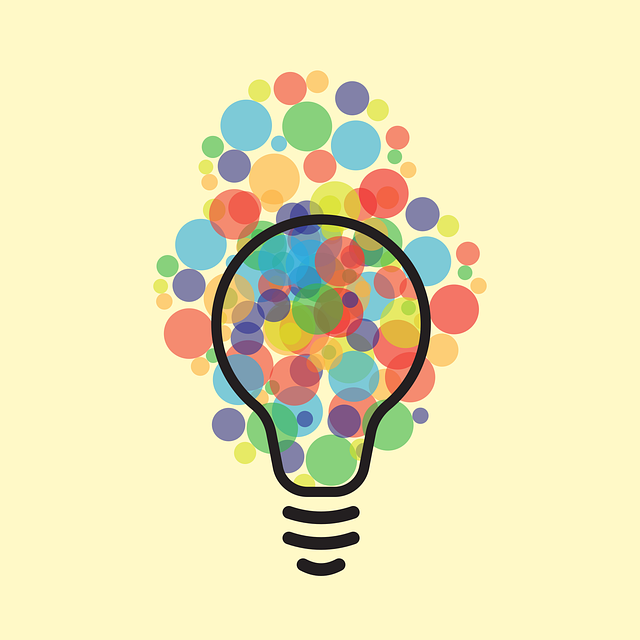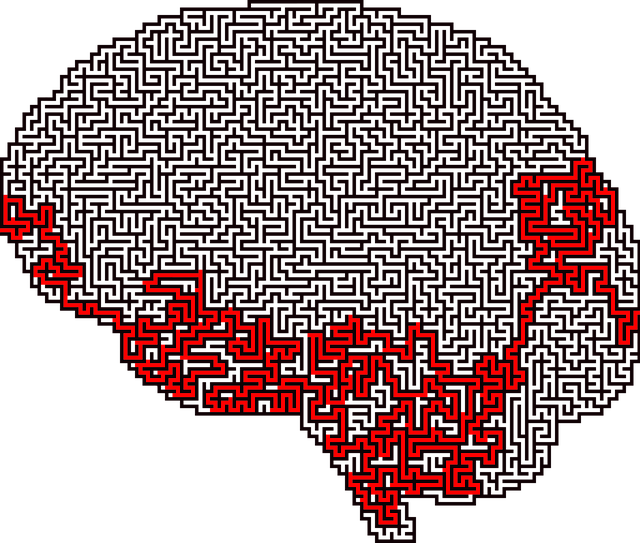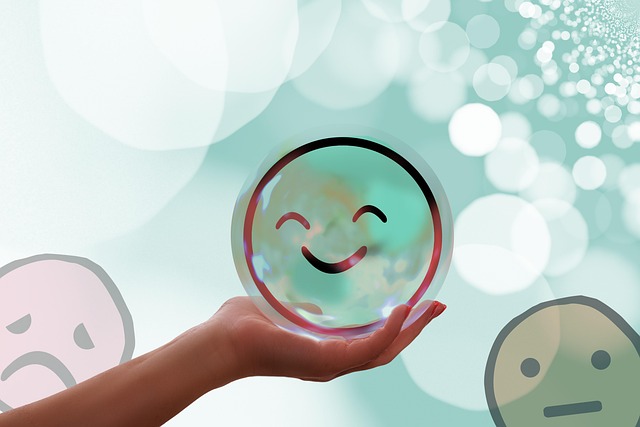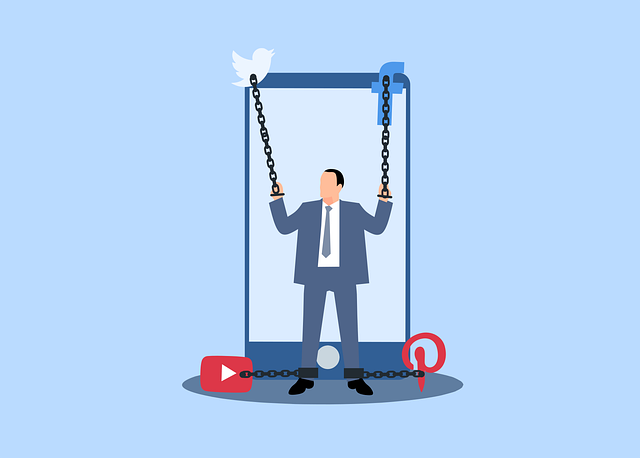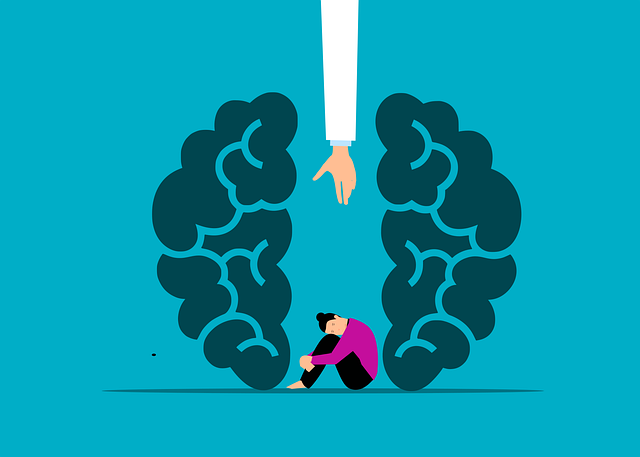Centennial Blended Families Therapy emphasizes emotional intelligence (EI) as a key to navigating complex family dynamics, promoting healthy relationships, and addressing unique challenges. Through journaling, self-care routines, open communication, and burnout prevention strategies, the program helps family members manage emotions, improve mental health, and build resilience. By fostering EI and self-awareness, therapy strengthens bonds, enhances conflict resolution, reduces stigma, and contributes to overall well-being within blended families.
Emotional intelligence (EQ) is a powerful tool for navigating complex relationships, especially within Centennial Blended Families. This article explores the profound impact of EQ on familial connections, delving into its core components and practical applications. We discuss the unique role therapy plays in enhancing EQ for blended families, offering strategies to foster self-awareness and empathy at home. Additionally, we examine how emotional intelligence navigates conflict, strengthens communication, and cultivates resilient bonds over time.
- Understanding Emotional Intelligence and its Impact on Relationships
- The Role of Therapy in Enhancing EQ for Centennial Blended Families
- Practical Strategies to Foster Self-Awareness and Empathy at Home
- Navigating Conflict and Communication with Emotional Intelligence
- Building Resilient Bonds: Long-term Benefits of EQ Development
Understanding Emotional Intelligence and its Impact on Relationships

Emotional intelligence (EI) is a powerful tool that fosters meaningful connections and strengthens relationships. At its core, EI involves recognizing, understanding, and managing one’s own emotions, as well as empathizing with and responding appropriately to others’ feelings. In today’s world, where people often juggle demanding careers, complex personal lives, and various responsibilities, cultivating emotional intelligence is more crucial than ever.
For blended families, in particular, where individuals from different backgrounds and experiences come together, high levels of EI can significantly enhance family dynamics. Centennial Blended Families Therapy emphasizes the importance of EI as a foundation for building strong, healthy relationships. Through mental wellness journaling exercises and guidance on self-care routine development, family members learn to navigate complex emotions, improve communication, and create a supportive environment. By integrating burnout prevention strategies tailored for healthcare providers—who often face high-stress situations—into their approach, therapy helps blended families manage challenges more effectively, ensuring everyone’s mental health and well-being are prioritized.
The Role of Therapy in Enhancing EQ for Centennial Blended Families

For Centennial Blended Families, therapy plays a pivotal role in enhancing emotional intelligence (EQ). The dynamic nature of these families, often involving step-parents, half-siblings, and complex living arrangements, can create unique challenges that impact everyone’s emotional well-being. Professional therapy provides a safe space for open communication, helping family members navigate these complexities and fostering a deeper understanding of each other’s feelings and perspectives.
Through resilience building techniques, therapy equips family members with the tools to cope with stress and adversity, strengthening their ability to manage emotions effectively. Additionally, sessions focused on self-esteem improvement help each individual recognize and value their unique worth, leading to healthier relationships within the family unit. Moreover, crisis intervention guidance is invaluable in managing the emotional fallout from significant life changes or conflicts, promoting a more harmonious home environment where emotional intelligence can flourish.
Practical Strategies to Foster Self-Awareness and Empathy at Home

Building emotional intelligence starts at home, where the foundation for healthy relationships and mental well-being is laid. For blended families in particular, fostering self-awareness and empathy can be a powerful tool to navigate complex dynamics and strengthen family bonds. Centennial Blended Families Therapy suggests practical strategies like regular check-ins – dedicated time for each family member to express their feelings and thoughts without judgment. This practice encourages self-reflection, helping individuals understand their emotions and triggers.
Additionally, cultivating positive thinking and confidence boosting activities can create a supportive environment. Encouraging open conversations about mental health and reducing the stigma associated with it is another effective approach. By normalizing discussions around emotions and challenges, families can foster empathy and strengthen their connections. These strategies not only promote emotional intelligence but also contribute to Mental Illness Stigma Reduction Efforts, creating a healthier and more understanding family dynamic.
Navigating Conflict and Communication with Emotional Intelligence

Navigating conflict and communication with emotional intelligence is a vital skill, especially within complex dynamics like Centennial blended families. The unique blend of individuals from different backgrounds and experiences can lead to both enriching discussions and challenging situations. Emotional intelligence provides a framework for understanding and managing these complexities. Through empathy, family members can walk in each other’s shoes, fostering deeper connections and resolving conflicts constructively.
Centennial Blended Families Therapy often emphasizes the importance of open communication and conflict resolution strategies. By leveraging Mental Health Policy Analysis and Advocacy, families can navigate legal and practical considerations while ensuring that emotional wellness remains a priority. Effective stress management techniques, incorporated into the Mental Wellness Podcast Series Production process, help family members stay calm under pressure, promoting healthier interactions. This holistic approach ensures that families not only resolve immediate conflicts but also build resilience for long-term mental health.
Building Resilient Bonds: Long-term Benefits of EQ Development

Building resilient bonds is one of the long-term benefits of emotional intelligence (EQ) development. In today’s fast-paced world, where stress and uncertainty often prevail, individuals with high EQ are better equipped to navigate challenging relationships. They understand the importance of empathy, active listening, and self-awareness in fostering strong connections with others, be it in personal or professional settings. This ability to form resilient bonds is particularly significant for blended families, where the integration of two distinct households can lead to complex dynamics. Centennial Blended Families Therapy emphasizes the role of EQ in helping family members communicate effectively, manage conflicts, and cultivate a sense of belonging, ultimately contributing to the well-being of the entire family unit.
The development of emotional intelligence not only strengthens interpersonal relationships but also significantly enhances one’s overall mental health. Incorporating a self-care routine that prioritizes emotional healing processes can be transformative. By implementing stress reduction methods, individuals can better regulate their emotions and maintain a healthy mindset. This holistic approach to well-being, combining EQ development with practices like Self-Care Routine Development for Better Mental Health, allows people to navigate life’s complexities with greater resilience and a deeper sense of inner peace.
Emotional intelligence is a powerful tool for fostering healthy relationships, especially within complex structures like Centennial blended families. By understanding and managing emotions, family members can navigate conflicts more effectively, enhance communication, and build resilient bonds that endure over time. Through the integration of therapy and practical strategies at home, parents and children alike can develop emotional awareness and empathy, leading to deeper connections and a stronger sense of well-being within these unique family dynamics.

